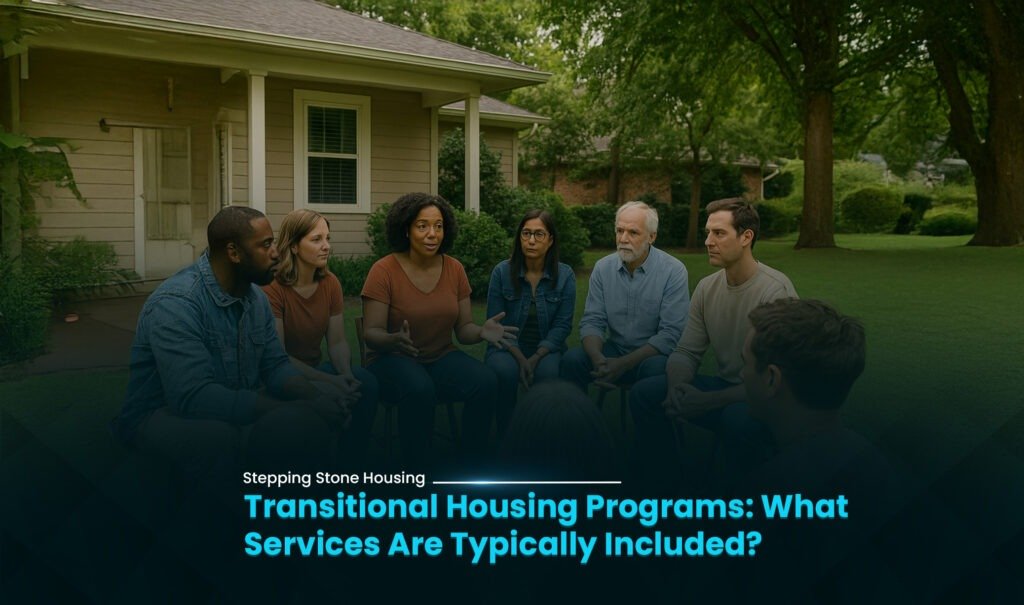Transitional Housing Programs: What Services Are Typically Included?
Furthermore, life’s challenges often overwhelm individuals facing housing instability. Additionally, losing a home creates profound hardship for countless families. Fortunately, transitional housing programs provide vital resources beyond basic shelter. Moreover, these programs offer comprehensive service suites designed to empower residents. Consequently, people can rebuild their lives through structured support systems.
Understanding Transitional Housing Programs
Initially, transitional housing programs provide unique temporary housing solutions for vulnerable populations. Subsequently, these programs bridge gaps between homelessness and permanent stable housing. Typically, residents stay between six months and two years maximum. Furthermore, programs focus on equipping residents with independent living skills. As a result, participants gain tools necessary for long-term housing stability.
Core Services Transform Lives Through Comprehensive Support
Notably, transitional housing programs integrate various essential services into their offerings. Additionally, these services aren’t optional extras but fundamental program components. First, programs address immediate resident needs through targeted interventions. Second, they promote long-term stability through skill-building initiatives. Therefore, comprehensive services create pathways to sustainable independence.
Case Management in Transitional Housing Creates Personalized Success Plans
Initially, case management provides foundational personalized support for every program participant. Moreover, dedicated case managers guide individual residents toward realistic goal achievement. Specifically, goals include employment opportunities, educational advancement, and personal development milestones. Furthermore, case managers navigate residents through internal and external resource connections. Consequently, individualized approaches ensure tailored support matching specific resident needs.
Life Skills Training Builds Essential Independence Capabilities
Often, people entering programs lack specific life skills necessary for independent living. Therefore, programs address deficiencies through workshops and direct instructional methods. Specifically, training covers budgeting, financial literacy, and healthy cooking techniques. Additionally, residents learn household management including cleaning and organizational systems. Furthermore, personal hygiene education addresses basic self-care requirements. Ultimately, practical skills prepare residents for successful independent living transitions.
Job Readiness and Employment Assistance in Transitional Housing
Primarily, securing stable employment represents a major program goal for participants. Therefore, programs prioritize comprehensive job readiness training through structured curricula. Specifically, training includes resume writing workshops and interview preparation sessions. Additionally, programs teach effective job search strategies to maximize employment opportunities. Sometimes, direct job placement assistance connects residents with potential employers. Consequently, employment support increases earning potential and fosters financial stability.
Mental Health and Substance Abuse Support Services
Frequently, individuals face mental health challenges alongside substance abuse issues. Therefore, programs integrate comprehensive support addressing these critical needs. Specifically, residents access individual and group counseling services regularly. Additionally, programs provide referrals to external specialists when necessary. Furthermore, addiction recovery support groups offer peer-based healing opportunities. Ultimately, mental health services help residents heal while promoting lasting sobriety.
Educational Support Creates Long-Term Success Opportunities
Moreover, education opens doors to improved life prospects for program participants. Therefore, programs help residents access various educational advancement opportunities. Specifically, support includes GED preparation and college application assistance. Additionally, vocational training programs provide specialized skill development pathways. Sometimes, tutoring services address individual learning needs effectively. Consequently, educational focus empowers residents while improving long-term life prospects.
Health and Wellness Services in Transitional Housing
Importantly, physical health remains vital for achieving overall life stability. Therefore, programs connect residents to comprehensive healthcare providers systematically. Specifically, care includes medical, dental, and vision services. Additionally, programs ensure residents receive necessary medications consistently. Furthermore, health education workshops cover nutrition and exercise fundamentals. Ultimately, prioritizing health improves overall resident well-being significantly.
Housing Navigation Creates Permanent Placement Success
Primarily, achieving permanent housing represents the ultimate program goal for participants. Therefore, programs actively facilitate smooth transitions through navigation services. Specifically, staff help residents find affordable housing options within budget constraints. Additionally, assistance includes rental applications and housing subsidy information. Furthermore, programs offer move-in support including security deposits and utility payments. Consequently, seamless transitions prove critical for long-term housing success.
Legal and Advocacy Support Removes Systemic Barriers
Often, legal issues create significant barriers to housing stability advancement. Therefore, programs offer comprehensive legal aid addressing various resident needs. Specifically, assistance includes identification documents and criminal record expungement. Additionally, advocacy services empower residents to navigate complex governmental systems. Furthermore, legal support helps residents protect their fundamental rights effectively. Consequently, removing legal barriers reduces stress while promoting stability.
Childcare and Family Support in Transitional Housing
Specifically, families facing homelessness require unique support addressing children’s needs. Therefore, programs provide childcare solutions enabling parent participation in activities. Additionally, childcare allows parents to pursue employment and educational opportunities. Furthermore, parenting classes connect families to child development resources systematically. Moreover, creating stable environments for children remains paramount for success. Ultimately, holistic approaches support entire family units effectively.
Community Building Prevents Isolation Through Social Integration
Frequently, isolation creates major challenges for individuals experiencing housing instability. Therefore, programs foster strong community senses through supportive residential environments. Specifically, residents share common experiences while building meaningful relationships. Additionally, group activities and shared meals encourage peer support systems. Furthermore, programs promote social integration through structured community engagement. Consequently, strong communities provide essential emotional support for healing.
Aftercare Services in Transitional Housing Ensure Long-Term Success
Importantly, support continues beyond program completion through comprehensive aftercare services. Subsequently, follow-up contact ensures continued stability for former residents. Additionally, residents access ongoing support groups and advisory services. Furthermore, extended support helps prevent relapse into homelessness effectively. Moreover, aftercare strengthens entire recovery processes through continued engagement. Therefore, long-term support ensures sustainable independence achievement.
Specialized Services Address Unique Population Needs
While core services remain common, programs offer specialized aid for specific populations. For instance, veterans’ programs focus on VA benefits and military-related services. Additionally, domestic violence shelters provide trauma-informed care addressing safety needs. Furthermore, sober living programs emphasize relapse prevention through structured environments. Moreover, programs for formerly incarcerated individuals offer re-entry support services. Consequently, specialized services enhance program effectiveness through targeted interventions.
Comprehensive Services Transform Lives Through Integrated Support
Notably, service arrays aren’t accidental but serve vital transformative purposes systematically. Additionally, components address multifaceted homelessness challenges through evidence-based interventions. Furthermore, services build essential skills while fostering true independence. Moreover, programs promote healing and recovery through holistic approaches. Without integrated services, programs would simply provide temporary shelter. Consequently, comprehensive services create transformative power enabling lasting success.
Collaborations Strengthen Outcomes Through Community Partnerships
Typically, programs work collaboratively with other community organizations to enhance services. Therefore, partnerships connect residents to broader community resources effectively. Specifically, collaborations include healthcare providers, educational institutions, and employment agencies. Additionally, community networks strengthen outcomes through comprehensive care coordination. Furthermore, partnerships ensure residents access all necessary support services. Consequently, collaborative approaches maximize program effectiveness and resident success.
Quality Assurance in Transitional Housing Ensures Effective Service Delivery
Continuously, programs strive for high-quality service delivery through systematic evaluations. Therefore, assessments measure resident progress against established program goals. Additionally, resident feedback provides crucial information for program improvement initiatives. Furthermore, staff receive ongoing training ensuring effective service delivery standards. Moreover, quality improvement represents a continuous process addressing evolving needs. Ultimately, commitment to excellence enhances positive outcomes for all participants.
Conclusion: Transitional Housing Services Create Pathways to Independence
Finally, transitional housing offers vital lifelines for individuals experiencing housing instability. Moreover, program strength lies in comprehensive service integration addressing multiple needs. Additionally, every element from case management to employment assistance contributes significantly. Furthermore, programs provide pathways to new lives beyond temporary shelter. Consequently, individuals gain empowerment while breaking cycles of homelessness effectively. Ultimately, programs foster self-sufficiency while promoting healing and personal growth. Therefore, understanding these services highlights their profound transformative impact on lives.


